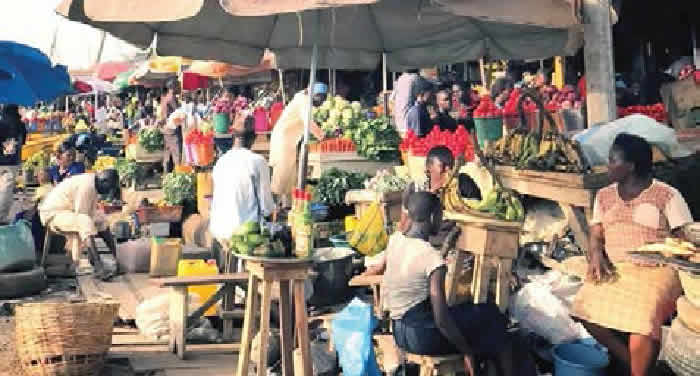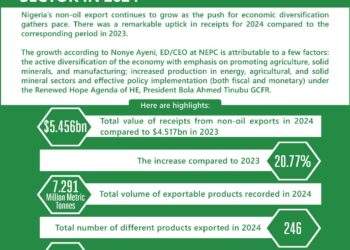Consumers in Awka and Onitsha in Anambra State are battling with soaring cost of food items, leading to the high cost of food commodities such as rice, beans, garri, palm oil, tomatoes, onions, fruits and others, at the various markets across the state.
Our correspondent, who visited the Relief Market in Onitsha, the commercial centre and Eke-Awka Market in Awka, the state capital, on Sunday, observed as residents, buyers, sellers and marketers blamed the high cost of items on the rise in dollars, just as the situation has dampened the mood of the people and forced them to be rationing food items.
At the Relief Market in Onitsha, a survey showed that the price of a 50kg bag of foreign rice was sold at N72,000 as against N51,000 sold a few weeks ago while a full bag of iron beans was sold at N110,000 as against N89,000 a few weeks ago.

The prices of baskets of onions, pepper, tomatoes and palm oil as well as garri, also increased significantly just as it was also observed that buyers and sellers quarrelled and argued over the rising cost of the food items.
A buyer at the Relief Market, identified as Nkechi Egbe, said, “The increase in the prices of food items has soared beyond the reach of the common man and this is a worrisome development, it has never been this bad.
“Sellers are blaming everything on the rise in the dollar, it is a pity. What has the dollar got to do with tomato, pepper, onion, palm oil and garri? Are they imported? The money I brought to the market today did not buy enough food items and it is already exhausted, yet, nothing to show for it.
“This was the same amount I came to the market with a few weeks ago, and after buying things, I had a handful of bags of items, but today, look at the only bag I am carrying, yet the items I bought could not fill the single bag.”
Another resident at the Eke-Awka Market, Obioma Chijioke, a mother of five lamented that fish and egg which used to be a source of protein were beyond the reach of the common man, wondering that the development might lead to malnutrition among children if nothing is done urgently.
Chijioke said, “Imported rice was formerly reserved for the super-rich, and protein which was available for the common citizens was iced fish which sold for between N350 and N400 now is sold from N2,000 for one. The egg which was formerly sold for N50 is now N150. This is a very disturbing development.
“The marketers and sellers of these items are blaming the rise in the dollar for this, while some are blaming bandits for dislodging farmers from their farmlands. It is a pathetic and worrisome situation and government at all levels must join hands together to tackle this.”









